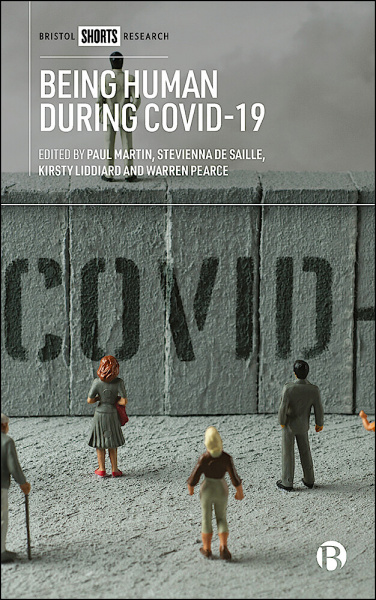
Colleagues at iHuman – a large faculty research institute at the University of Sheffield, co-run by one of my academic mentors on this project – have put together an edited collection called Being Human During COVID-19, published by Bristol University Press.
I was invited to contribute a chapter to this collection, which you can read open access here. It is a very brief piece, which collects some thoughts pulled together during one of the lockdowns in 2020/21.
The chapter, Reflections on the Future of Life-Saving Stem Cell Donor Recruitment, discusses how the pandemic disrupted stem cell donor recruitment, pushing online a lot of the important community work that underpins consistent registrations. In-person donor recruitment activity is seen to be especially effective for recruitment of racially minoritised donors who might then go on to be somebody’s life-saving donor. Its cessation, though temporary, thus has had some important consequences.
“It is something of a cruel calculus that the very actions designed to save lives – lockdowns and restrictions on movement – stymie work that has its own life-saving potential”
Through interviews with practitioners, as well as insights from my ethnographic work with some of them, the chapter is intended to remind us about the value – potentially irreplaceable – of in-person recruitment work, which relies on a huge amount of interpersonal, physical, verbal effort to inform and reassure people and maximise the likelihood that they will donate.
I am grateful to Bristol University Press for working with my funder, Wellcome Trust, which mandates Open Access (i.e., free of paywalls) for all written outputs from the research they fund.
